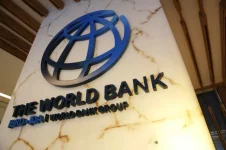Zimbabwe stands to clear decades-old arrears and restructure its $21 billion debt through implementing critical fiscal reforms, according to the World Bank. The nation has remained excluded from international capital markets for more than 25 years due to these financial challenges. Bold fiscal adjustments could help Zimbabwe stabilize its economy and create conditions for debt resolution.
The World Bank released a report Wednesday highlighting how comprehensive reforms might enable Zimbabwe to access concessional multilateral funding. Such funding would support both public and private sector investments needed for economic growth. These changes could establish a credible national budget that remains efficient and resilient against fiscal shocks.
Zimbabwe defaulted on payments to major lenders, including the World Bank, Paris Club, and African Development Bank, in 1999. Recent efforts to address the debt crisis have intensified, with Zimbabwe seeking assistance from AfDB President Akinwumi Adesina and former Mozambican President Joaquim Chissano. The country has also engaged Global Sovereign Advisory for guidance and begun compensating farmers affected by early 2000s land reforms.
The Washington-based institution recommends eliminating distortions in monetary and exchange rate policies to achieve stable inflation rates. Additional suggestions include reducing government expenditures by decreasing the public-sector wage bill by eliminating redundant positions. The World Bank advises removing tax exemptions on value-added tax to enhance revenue collection.
Last April, Zimbabwe introduced the ZiG currency as an attempt to reduce reliance on US dollars for domestic transactions. Previous attempts at establishing viable local currency have resulted in severe inflation problems. The central bank has implemented measures to stabilize the ZiG by controlling the money supply and requiring businesses to price goods in local currency, though informal markets continue operating at higher unofficial exchange rates.
The World Bank further encourages Zimbabwe to tackle its growing informal economy. Recommended approaches include reducing macroeconomic constraints, simplifying business compliance requirements, and creating a fair tax structure for formal transactions. These measures could potentially place Zimbabwe on a path toward sustained economic stability and growth after decades of financial challenges.
The World Bank released a report Wednesday highlighting how comprehensive reforms might enable Zimbabwe to access concessional multilateral funding. Such funding would support both public and private sector investments needed for economic growth. These changes could establish a credible national budget that remains efficient and resilient against fiscal shocks.
Zimbabwe defaulted on payments to major lenders, including the World Bank, Paris Club, and African Development Bank, in 1999. Recent efforts to address the debt crisis have intensified, with Zimbabwe seeking assistance from AfDB President Akinwumi Adesina and former Mozambican President Joaquim Chissano. The country has also engaged Global Sovereign Advisory for guidance and begun compensating farmers affected by early 2000s land reforms.
The Washington-based institution recommends eliminating distortions in monetary and exchange rate policies to achieve stable inflation rates. Additional suggestions include reducing government expenditures by decreasing the public-sector wage bill by eliminating redundant positions. The World Bank advises removing tax exemptions on value-added tax to enhance revenue collection.
Last April, Zimbabwe introduced the ZiG currency as an attempt to reduce reliance on US dollars for domestic transactions. Previous attempts at establishing viable local currency have resulted in severe inflation problems. The central bank has implemented measures to stabilize the ZiG by controlling the money supply and requiring businesses to price goods in local currency, though informal markets continue operating at higher unofficial exchange rates.
The World Bank further encourages Zimbabwe to tackle its growing informal economy. Recommended approaches include reducing macroeconomic constraints, simplifying business compliance requirements, and creating a fair tax structure for formal transactions. These measures could potentially place Zimbabwe on a path toward sustained economic stability and growth after decades of financial challenges.












